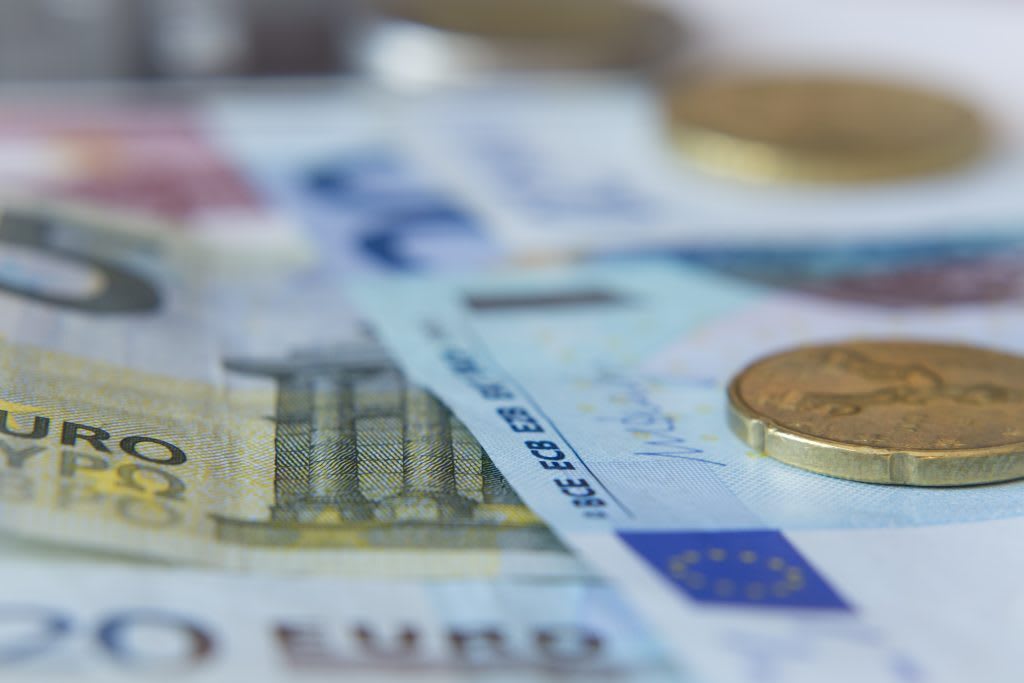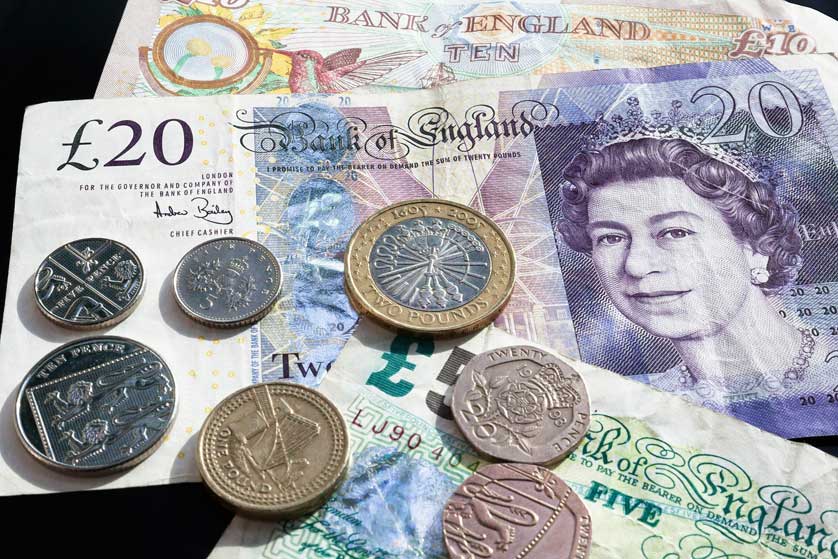Currency conversion charges are critical in today's world-wide economy, no matter if you travel overseas to conduct business, or have investments in foreign currency. The cost of these fees vary widely based on the currency, exchange method, and the company that you use. By learning to navigate around the various fees, you can save money and make smart decisions. These are the top 10 tips for converting currencies that can help both travelers and businesspeople.
1. Learn about the different types of currency Conversion Fees
The fees for conversion of currency can take on many varieties. They can be transaction fees, service fees, or markups for exchange rates. Transaction fees are a fixed cost for every exchange, whereas service charges can be an amount that is a percentage of the amount of money converted. Markups on exchange rates are charged when the provider is able to offer an exchange rate that is that is less than market rates. You can find the best solutions to meet your needs by becoming knowledgeable with these kinds of costs.
2. Compare Rates from Multiple Providers
Comparison of rates between multiple providers is essential prior to converting currencies. Currency exchange kiosks, banks, and online platforms often have different fee structures and exchange rates. You can use currency converters to compare rates live and estimate the total cost, with fees for each option. This will assist you in finding the most favorable deal and potentially save a significant amount, especially when exchanging larger sums.
3. You can find free options for currency exchange
Some financial institutions and banks offer accounts that include free currency conversion or lower charges on certain transactions. Online banks and Fintech are among them. They offer customers with accounts free currency exchange. Consider opening an account with one of these institutions, if you regularly deal in foreign currencies.
4. Beware of DCC costs
If you use your credit or debit card abroad, you may be able to pay with the currency of your home country using a service known as Dynamic Currency Conversion. While this might sound like a good option, there are often more expensive conversion rates and exchange charges. Pay locally whenever possible to avoid additional costs and obtain the best rate.
5. Credit cards are accepted with no foreign transaction charges
You will save money when you use credit cards with no charge for foreign transactions while you travel. Numerous travel-related credit cards offer this benefit, which allows you to make purchases abroad without incurring any additional costs. You should choose a card that has favorable exchange rates and corresponds to your spending routine. This will help you to reduce costs when traveling.
6. Consider ATMs as a Source of Cash Withdrawal
The exchange rate can be better at ATMs than in currency exchange booths. Be aware of charges that could be charged from your bank or ATM operator. To reduce fees, look for ATMs connected to your bank. Also, withdraw only in local currency.
7. Plan your currency conversion in advance
- Avoid last-minute currency exchanges at airports or tourist hotspots which are usually higher. To receive the most favorable rates and lowest fees make sure you have a plan in place to exchange your currency. Consider researching the best local option for currency exchange. Exchange a small amount to cover expenses immediately prior to your departure and then convert an amount larger at more favorable exchange rates when you arrive.
8. Keep an eye on the trends in exchange rates
Monitoring changes in exchange rates will help you determine the most advantageous times to change your currency. Changes in exchange rates could cause a variety of costs and fees as such, so keeping track of these trends can enable you to time your conversions carefully. Use financial and historical data to help you make informed decisions. This will allow you to benefit from favorable conditions.
9. Calculate hidden fees when making transactions
Beware of hidden charges that aren't immediately apparent. These include charges for service, fees to maintain foreign currency accounts and exchange rates that aren't favorable. Ask questions and read the fine print to make sure you are aware of the costs of currency conversion. This diligence may prevent you from being billed unexpectedly and could help make your financial decisions better.
10. Consult financial experts for major transactions
- If you're conducting large transactions or dealing with complicated currency exchanges, consulting financial experts can be beneficial. Experts in currency can provide advice on how you can reduce the cost of conversion and improve your transactions. This is particularly important for businesses involved in international trade or investors seeking to manage their currency exposure efficiently.
You can better navigate your way through currency exchanges if you adhere to these tips. Knowing the costs of conversion allows you to make more informed financial decisions that are aligned to your personal or business objectives. This will ultimately help you save money and improve your financial plan. Read the best AED to USD url for blog recommendations including usd to chinese yuan, usd to colombian peso, dollar to won, rs to usd, euro usd, doller to rupee, aed to usd, cop to usd, us dollar to php, 1 usd in rupees and more.

Ten Tips To Improve Your Payment Method, In Terms Of Exchange Rates And Currencies
In the current global economy, it is important to choose the right method of payment in order to efficiently manage your financial transactions whether you are you are traveling abroad, running business or keeping track of investments. The selection of a payment method will significantly impact the cost, ease of use, and security. The payment methods you choose to use are contingent on charges, exchange rates and the degree of acceptance. This could have a significant impact on your overall experience. Understanding the nuances behind different payment methods can assist you in making well-informed choices that are compatible with your financial goals. These are the most complete guidelines on how to select and use the right payment method for your financial endeavors.
1. Learn more about the many payment options that are available
Learn about the various payment options, which include credit/debit cards, cash mobile payments, as well as digital wallets. Each option comes with distinct advantages and disadvantages, including charges and acceptance. Cash, for instance, is generally accepted but it isn't always convenient and less secure when used to purchase large amounts of goods. You can select the most suitable method to suit your needs by considering the advantages and disadvantages of each.
2. Converting currencies is expensive.
Be aware that there might be currency conversion costs when using credit cards or debit cards to make international transactions. Credit card and bank providers can charge various fees. Certain cards come with a foreign transaction charge, but others don't. When you plan to go to a destination or make a purchase in another country make sure you inquire from your bank regarding the policy on currency conversion fees. Then choose the card that will minimize these costs.
3. No foreign transaction fee credit cards
If you're planning to travel abroad or buy in foreign currency Choose a credit card that does not charge any fees for foreign transactions. Many travel-related cards come with this advantage. You can utilize your credit card abroad at no additional cost. This can result in substantial savings, especially for frequent travelers or those making substantial purchases in markets outside of the country.
4. Make use of mobile alternatives
Mobile payment options like Apple Pay or Google Pay provide a convenient alternative to carrying cash and cards. These services have enhanced security features like tokenization and authentication biometrics which makes it a secure option for both in-person and online transactions. You should consider mobile payments for smaller purchases to help you streamline your budget.
5. Pay Attention to ATM Charges when withdrawing cash
If you are traveling and need to withdraw money from an ATM Be aware that charges may differ. Some banks charge fees for international withdrawals while others may partner with local banks and offer free withdrawals. Researching ATM networks that provide lower fees can help you save money when you withdraw money abroad. You can also make withdrawals of more money to lower transaction fees.
6. Plan for Alternative Payment Methods
It is important to have a backup method of payment in the event your primary method fails, or you are unable to use it. Make sure you have a backup credit card (credit/debit) or some cash or an option for mobile payments on hand to ensure you can continue buying. This is especially important when you travel, since certain areas may not be able to accept all payment methods. Be prepared to prevent any unanticipated situations.
7. Keep track of exchange rates for better decisions
If you are making purchase of foreign currency, be aware of the exchange rates so that you are able to make an informed decision about whether or not you should change your currency. Software and applications that track exchange rates in real-time can help you determine favorable conditions for currency converters. This can influence the method of payment you select particularly when fees are related to exchange rates.
8. Be aware of security features
When you are choosing a payment method, security should be a top priority. Check the security measures offered by your credit or bank provider. Consider options that include the protection against fraud, transaction notifications and encryption. Secure payment methods protect you from fraudulent and unauthorized transactions. This is crucial when you shop online or abroad.
Review Payment Policy Guidelines in the Business
Understanding the policies regarding payment for your company is vital to managing cash flow and customer transactions. Explore the various payment processors, their functions charges, and acceptance rates. Select a payment option that matches your company's goals, regardless of whether you value low transaction fees, fast processing times, or customer convenience. The right choice of payment methods can improve customer satisfaction and simplify your business.
10. You should educate yourself on the various investment payment options
Investors should be aware of different payment options available when purchasing or selling assets. Different brokerage platforms might offer varying payment options for funding accounts and for trading. Be aware of the costs and processing time associated with these options. Consider the consequences of using margin accounts or investing with leverage, as they affect your overall financial plan.
These detailed guidelines to pay methods can help you navigate the maze of traveling, doing business and monitoring your investments. Understanding the different options and the associated costs, and security features, will help you make better informed financial choices. A good payment method can make your life easier and save you money. It also gives you peace of mind when it comes to the financial transactions you make. See the recommended her comment is here on euro for site tips including dollar to php peso, dollar to yen, cop to usd, dollar to inr, thb to usd, dollar to php peso, euro to dollar, pesos to usd, us to peso, 1 usd in rupees and more.
